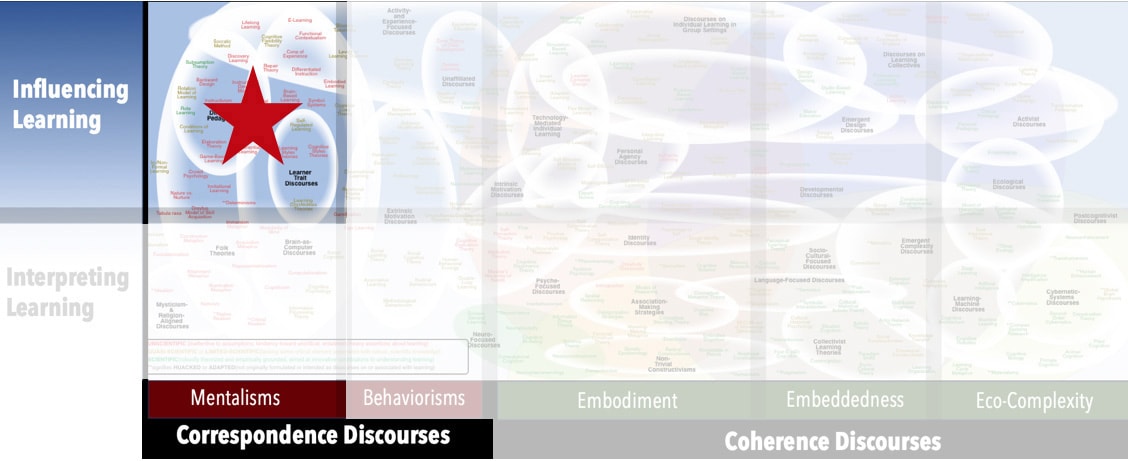AKA
Game Reward Systems
Gamification of Learning
Focus
Use of games to motivate learningPrincipal Metaphors
Proponents of Gamification are rarely explicit on the principles of learning that inform their discussions and recommendations. In the literature we reviewed, the Acquisition Metaphor was especially prominent when matters of learning were engaged:- Knowledge is … object, commodity, material
- Knowing is … mastery/retention
- Learner is … a recipient (individual)
- Learning is … acquiring
- Teaching is … delivering
Originated
2000sSynopsis
Broadly speaking, Gamification refers to the use of elements and principles of game-design in non-game situations. Within education, Gamification is typically focused on matters of student motivation – by, for example, injecting choice or challenge in ways that make learning activities more engaging. While motivation is the core theme of Gamification, sub-interests span such topics as Self-Efficacy, Learning Transfer, identity formation, real-time feedback, problem solving, scaffolded learning, and social connection. (Compare Constructionist Gaming and Games and Learning.)Commentary
The most prominent criticisms of Gamification in education focus its reliance on extrinsic motivators, which some commentators argue might negatively impact intrinsic motivation for learning. In a related vein, concern has been voiced that overuse of Gamification might instantiate the opinion that classrooms should be “fun” spaces. As well, Gamification is often seen to be time-consuming, resource intensive, and oftentimes simplistic and manipulative.Authors and/or Prominent Influences
DIffuseStatus as a Theory of Learning
Gamification is not a theory of learning.Status as a Theory of Teaching
With its core focus on motivation, Gamification in education is properly construed as a theory of teaching. It is about influencing learning.Status as a Scientific Theory
There has been considerable research into Gamification, with mixed results. In general, it has been demonstrated that Gamification can support learner engagement and positively affect achievement scores. However, many studies suggest gains tend to be quite limited. Because proponents of Gamification have not been explicit or critical about their assumptions around learning, the perspective does not qualify as scientific in our analysis.Map Location

Please cite this article as:
Davis, B., & Francis, K. (2021). “Gamification” in Discourses on Learning in Education. https://learningdiscourses.com.
⇦ Back to Map
⇦ Back to List
